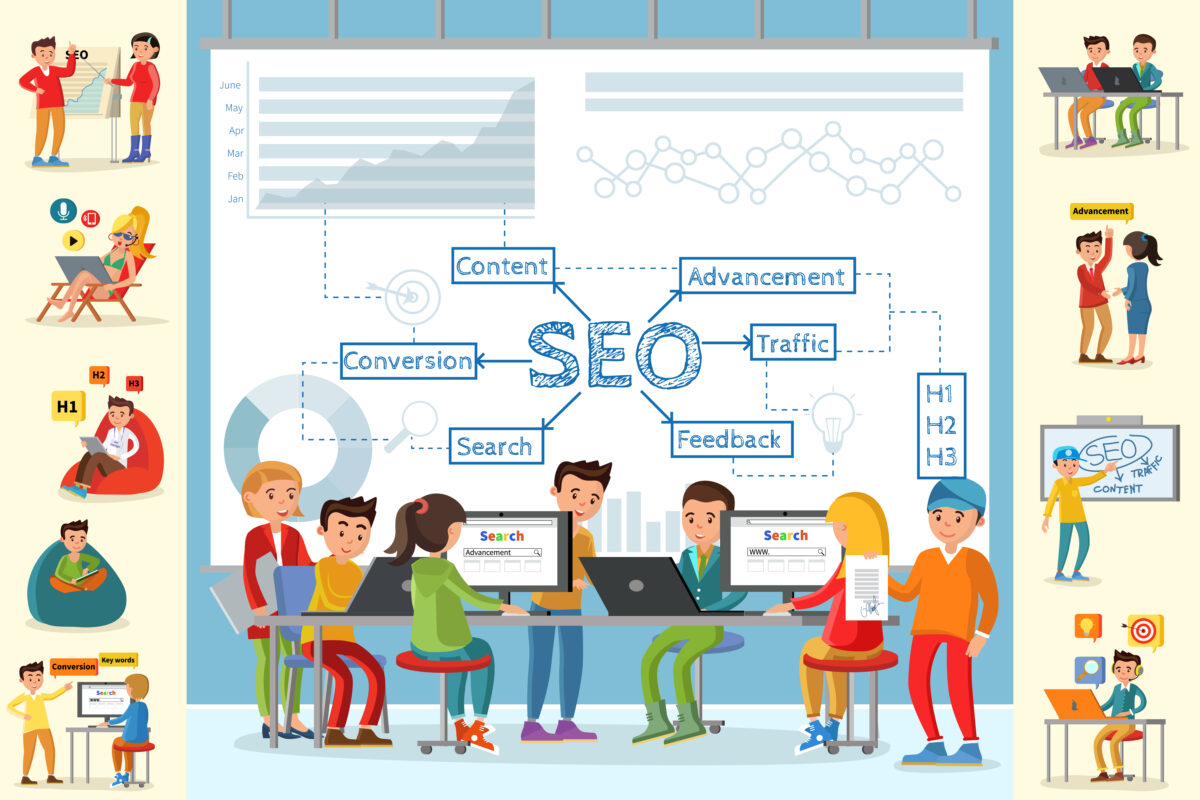In today’s data-driven world, managing data efficiently is crucial for any business or organization. Whether it’s customer information, transaction details, or inventory data, the need for robust and efficient database systems is evident. This is where Database Management Systems (DBMS) come into play. A DBMS is a software application that interacts with the user, applications, and the database itself to capture and analyze data. This guide will take you through the essentials of DBMS, its types, benefits, and why it’s a cornerstone of modern data management. What is a Database Management System (DBMS)? A Database Management System (DBMS) is software designed to store, retrieve, define, and manage data in a database. It acts as an interface between the end-user and the database, ensuring that data is consistently organized and easily accessible. The DBMS allows users to create, read, update, and delete data in the database, ensuring that it remains consistent, accurate, and secure. Types of Database Management Systems There are several types of DBMS, each suited to different needs and use cases: Hierarchical DBMS: This type of DBMS organizes data in a tree-like structure, where each record has a single parent and potentially multiple children. It’s ideal for applications with a clear hierarchical relationship, like organizational structures or file systems. Network DBMS: Similar to the hierarchical model, but in this type, each child record can have multiple parent records, forming a graph structure. This model is useful for complex many-to-many relationships, such as telecommunication networks or transport routes. Relational DBMS (RDBMS): The most common type, RDBMS organizes data into tables (relations) that can be linked—or related—based on data common to each. SQL (Structured Query Language) is typically used to manage and query data in an RDBMS. Examples include MySQL, PostgreSQL, Oracle, and SQL Server. Object-oriented DBMS (OODBMS): This type supports the storage of data in the form of objects, as used in object-oriented programming. It’s ideal for applications that require complex data representations, such as CAD (Computer-Aided Design) systems or AI applications. NoSQL DBMS: Designed for unstructured data and flexible schemas, NoSQL databases (like MongoDB, Cassandra, and Redis) are optimized for specific data models and have been developed to handle the vast scale of modern web applications. NewSQL DBMS: These are relational databases that aim to provide the same scalable performance of NoSQL systems while maintaining the ACID (Atomicity, Consistency, Isolation, Durability) properties of traditional databases. Examples include Google Spanner and CockroachDB. Key Components of a DBMS A DBMS comprises several crucial components that work together to manage data efficiently: Database Engine: The core service for accessing and processing data, managing data storage on disk, and providing transaction management and concurrency control. Database Schema: Defines the logical structure of the database, including tables, fields, relationships, views, indexes, and other elements. Query Processor: Interprets and executes database queries written in SQL or another query language, optimizing them for efficient data retrieval. Transaction Manager: Ensures that all database transactions are processed reliably and adhere to the ACID properties, which maintain data integrity during concurrent access and system failures. Storage Manager: Manages the physical storage of data on disk, handling data allocation, deallocation, and maintenance. Database Administrator (DBA): A person responsible for maintaining, backing up, and securing the database, ensuring its availability and performance. Benefits of Using a DBMS Implementing a DBMS provides numerous advantages: Data Integrity and Security: A DBMS enforces data integrity rules, ensuring that only valid data is stored in the database. It also provides robust security features to protect data from unauthorized access. Efficient Data Management: DBMSs allow for efficient data organization, storage, and retrieval, which saves time and reduces the cost of data management. Data Consistency: By centralizing data management, a DBMS ensures data consistency across multiple applications and users. Scalability: Modern DBMSs are designed to scale easily, allowing businesses to grow their databases as their data needs expand. Backup and Recovery: A DBMS provides tools for automatic backup and recovery, ensuring data is not lost and can be restored quickly in case of failures. Concurrent Access: DBMSs manage concurrent data access efficiently, allowing multiple users to interact with the database simultaneously without conflicts. Improved Data Sharing: With a centralized database, data can be easily shared across different departments or with external stakeholders, promoting better collaboration and decision-making. Use Cases of DBMS DBMSs are used across various industries and applications: E-Commerce Platforms: To manage product catalogs, customer information, and transaction records. Banking Systems: For handling customer accounts, transactions, and other financial data securely and reliably. Healthcare: Managing patient records, treatment histories, and medical research data. Telecommunications: Storing call records, customer data, and network information. Education: For storing student records, grades, and academic research data. Social Media: Managing vast amounts of user data, posts, comments, and interactions. Challenges in Implementing a DBMS While DBMSs offer numerous benefits, they also present certain challenges: Complexity: Setting up and maintaining a DBMS can be complex, requiring specialized skills and knowledge. Cost: High-quality DBMS software can be expensive, particularly for small businesses. Performance: In large-scale environments, DBMS performance can degrade if not properly managed and optimized. Data Security: While DBMSs offer security features, they can also become targets for cyber-attacks, necessitating robust security measures. The Future of DBMS The future of DBMS looks promising, with advancements in cloud computing, AI, and machine learning driving innovation. Cloud-based DBMS solutions, such as Amazon RDS, Google Cloud SQL, and Microsoft Azure SQL Database, offer flexible, scalable, and cost-effective options for businesses of all sizes. Additionally, AI and machine learning integration in DBMSs can automate routine tasks like indexing, query optimization, and anomaly detection, making data management more efficient and reliable. Conclusion A Database Management System is an indispensable tool in today’s data-centric environment. By understanding the types of DBMS, their components, benefits, and challenges, businesses can make informed decisions about selecting the right database solutions for their needs. As technology continues to evolve, so will DBMS, offering even more powerful and flexible data management capabilities in the future. By leveraging a robust DBMS, organizations can […]
Author Archives: ribbitzadmin
In the realm of digital innovation, Unity stands out as a powerhouse for creating interactive experiences. From immersive games to complex simulations, Unity development is revolutionizing how we engage with technology. This blog explores the essence of Unity development, its key features, and why it is becoming the go-to platform for developers worldwide. What is Unity Development? Unity development refers to the process of creating applications, games, and interactive content using the Unity game engine. Unity, founded in 2005, has evolved into one of the most versatile and widely used platforms for developing both 2D and 3D content. Its user-friendly interface, extensive asset store, and cross-platform capabilities make it a favorite among developers and businesses alike. Why Choose Unity for Development? Cross-Platform Compatibility One of Unity’s standout features is its cross-platform compatibility. Developers can create applications that run on multiple platforms, including iOS, Android, Windows, macOS, and various gaming consoles. This versatility means that businesses can reach a broader audience without needing to redevelop their product for each platform, saving time and resources. User-Friendly Interface Unity’s interface is designed with ease of use in mind. Its drag-and-drop functionality and visual scripting tools allow developers to quickly create and test prototypes. For those who prefer coding, Unity supports C#, a widely used programming language that offers a rich set of features for game development and interactive applications. Rich Asset Store Unity’s Asset Store is a treasure trove of pre-built assets, tools, and plugins that can accelerate development. From 3D models and animations to sound effects and scripts, the Asset Store provides developers with resources that can save time and enhance the quality of their projects. This marketplace also allows developers to buy and sell assets, fostering a vibrant ecosystem of creativity. High-Performance Graphics Unity is renowned for its high-performance graphics capabilities. With support for advanced rendering techniques, such as real-time lighting, reflections, and shadows, Unity enables developers to create visually stunning experiences. The engine’s optimization tools help ensure that applications run smoothly across various devices, enhancing user satisfaction. Strong Community and Support Unity boasts a large and active community of developers, artists, and enthusiasts. This community contributes to a wealth of online resources, including forums, tutorials, and documentation. Unity’s official website and community-driven platforms offer support for troubleshooting, learning, and networking, making it easier for developers to find solutions and stay updated on the latest trends. Applications of Unity Development Game Development Unity is perhaps best known for its role in game development. Its robust features make it ideal for creating engaging and interactive games. Developers can build everything from simple 2D mobile games to complex 3D console games. Unity’s support for virtual reality (VR) and augmented reality (AR) further expands its potential in the gaming industry, allowing for innovative and immersive gameplay experiences. Augmented and Virtual Reality As AR and VR technologies continue to advance, Unity remains at the forefront of these developments. The engine’s compatibility with various VR headsets and AR devices makes it a popular choice for creating immersive experiences. Whether it’s for training simulations, virtual tours, or interactive storytelling, Unity provides the tools necessary to build compelling AR and VR applications. Simulations and Training Unity’s versatility extends beyond gaming into simulations and training applications. Businesses and educational institutions use Unity to create realistic simulations for training purposes. From flight simulators to medical training programs, Unity’s ability to render detailed environments and interactive scenarios makes it an effective tool for skill development and experiential learning. Architectural Visualization Architects and real estate professionals leverage Unity to create detailed visualizations of building projects. By using Unity, they can create interactive 3D models of architectural designs, allowing clients to explore and experience spaces before construction begins. This interactive approach helps in better decision-making and client engagement. The Future of Unity Development The future of Unity development is bright and filled with opportunities. As technology continues to evolve, Unity is consistently updating its features to keep pace with industry trends. The engine’s support for emerging technologies such as machine learning and blockchain is opening new avenues for innovation. Machine Learning Integration Unity’s integration with machine learning tools enables developers to create intelligent systems and adaptive behaviors within their applications. This integration allows for more dynamic and responsive experiences, enhancing user interaction and engagement. Blockchain Technology Blockchain technology is gaining traction in various industries, and Unity is exploring ways to incorporate it into game development and interactive applications. This includes potential applications for secure transactions, digital assets, and decentralized applications (dApps). Increased Focus on User Experience As user expectations continue to rise, Unity is placing a greater emphasis on enhancing user experience. This includes improvements in graphics rendering, user interface design, and performance optimization. Unity’s commitment to user-centric development ensures that applications created with the engine remain competitive and engaging. How to Get Started with Unity Development Getting started with Unity development is accessible, thanks to the platform’s comprehensive resources and support. Here are some steps to help you embark on your Unity development journey: Download and Install Unity Begin by downloading and installing the Unity Hub, which manages Unity installations and projects. Unity offers a free version for personal use and smaller projects, with paid plans available for professional and enterprise needs. Learn the Basics Unity provides extensive learning materials, including official tutorials, documentation, and online courses. Familiarize yourself with the Unity interface, basic scripting, and asset management to build a solid foundation. Start a Project Create a new project and experiment with Unity’s features. Start with simple projects to practice and gradually tackle more complex tasks as you gain confidence. Join the Community Engage with the Unity community through forums, social media, and local meetups. Connecting with other developers can provide valuable insights, feedback, and collaboration opportunities. Unity development is transforming the way we interact with digital content, offering powerful tools for creating games, simulations, and immersive experiences. Its cross-platform capabilities, user-friendly interface, and strong community support make it a top choice for developers and businesses alike. As technology […]
In today’s fast-paced and highly competitive business landscape, effective project management is crucial for achieving organizational success. Project management systems (PMS) have become indispensable tools for businesses aiming to streamline operations, enhance collaboration, and drive growth. This blog explores the role of project management systems in contributing to business success, outlining their benefits, key features, and how they can be leveraged to achieve strategic goals. What is a Project Management System? A project management system is a software application designed to assist in planning, organizing, and managing resources to achieve specific project goals. It provides tools for scheduling, task management, resource allocation, and performance tracking. By centralizing project information, these systems enable teams to work more efficiently and make data-driven decisions. Benefits of Project Management Systems Enhanced Organization and Efficiency Project management systems help businesses organize tasks, resources, and timelines more effectively. By providing a structured framework for project execution, these systems reduce the risk of missed deadlines and overlooked tasks. Features like Gantt charts, task lists, and calendars enable project managers to visualize the project’s progress and adjust plans as needed, ensuring that everything stays on track. Improved Collaboration and Communication Effective communication is a cornerstone of successful projects. Project management systems facilitate seamless collaboration among team members by providing centralized platforms for communication, file sharing, and real-time updates. Tools such as chat features, discussion boards, and document sharing enhance team coordination, reducing misunderstandings and ensuring that everyone is on the same page. Better Resource Management Resource allocation is a critical component of project management. PMS tools help businesses allocate resources more efficiently by tracking the availability and utilization of personnel, equipment, and budget. This ensures that resources are used optimally, reducing waste and preventing bottlenecks. By analyzing resource data, businesses can make informed decisions about future projects and resource planning. Real-Time Tracking and Reporting One of the significant advantages of project management systems is their ability to provide real-time tracking and reporting. These systems offer dashboards and analytics that give project managers insights into project performance, including progress, budget utilization, and task completion rates. Real-time reporting helps identify issues early and allows for timely interventions, improving overall project outcomes. Increased Accountability and Transparency Accountability and transparency are essential for project success. Project management systems enhance both by providing clear visibility into project roles, responsibilities, and progress. By documenting all project activities and decisions, these systems ensure that team members are held accountable for their tasks and that stakeholders can easily track project status and milestones. Risk Management and Mitigation Projects often involve uncertainties and risks. Project management systems help identify, assess, and manage potential risks by providing tools for risk analysis and mitigation planning. By anticipating risks and implementing proactive measures, businesses can minimize the impact of unforeseen issues and keep projects on course. Enhanced Customer Satisfaction Delivering projects on time, within budget, and to the desired quality standards significantly impacts customer satisfaction. Project management systems contribute to meeting these goals by improving project execution and communication with clients. Timely updates, transparent progress tracking, and efficient issue resolution all contribute to a positive customer experience. Key Features of Project Management Systems Task Management Task management features allow users to create, assign, and track tasks within a project. These tools help ensure that all tasks are completed as planned and that any delays are promptly addressed. Scheduling Tools Scheduling tools, such as Gantt charts and timelines, provide visual representations of project schedules. They help project managers plan and monitor the sequence of tasks and milestones. Resource Management Resource management features track the allocation and utilization of resources, including personnel, equipment, and budget. These tools help optimize resource use and avoid over allocation. Collaboration Tools Collaboration tools facilitate communication among team members and stakeholders. Features such as chat, file sharing, and discussion forums enhance teamwork and information sharing. Reporting and Analytics Reporting and analytics tools provide insights into project performance through dashboards, charts, and reports. These features help project managers track progress, analyze data, and make informed decisions. Integration Capabilities Integration capabilities allow project management systems to connect with other business tools, such as CRM software, accounting systems, and productivity apps. This ensures a seamless flow of information and reduces the need for manual data entry. Choosing the Right Project Management System Selecting the right project management system for your business involves evaluating your specific needs, project complexity, and team size. Consider factors such as ease of use, scalability, and integration capabilities when choosing a PMS. Popular options include Asana, Trello, Microsoft Project, and Jira, each offering unique features to support various project management requirements. Project management systems play a vital role in driving business success by enhancing organization, collaboration, and efficiency. By leveraging these tools, businesses can improve resource management, track progress in real-time, and manage risks effectively. Investing in a robust project management system not only streamlines project execution but also contributes to achieving strategic goals and delivering exceptional results. As businesses continue to navigate complex projects and dynamic environments, the role of project management systems will remain crucial in ensuring sustained success and growth.
In today’s fast-paced digital world, online is the place to be. But who has time to figure out search engine optimization (SEO)? It’s a lot like trying to solve a Rubik’s Cube blindfolded. That’s where a trusted SEO outsourcing agency comes in, swooping in to save the day like some kind of superhero. As a business owner or marketer, you have about 100 other things to think about. That’s why entrusting an experienced team to focus on your SEO is one of the best decisions you can make. The Basics: Why SEO Matters This scenario can be likened to having a shop in the heart of a busy city but without any sign, light, or anyone knowing where it is. You may have the most perfect products in the entire world, however, if there are no people to see them then who is going to find you? That is what SEO does- it puts up the lights, and signs and makes sure that people will come to you.It’s a fact that search engines are always changing their algorithms, and what was effective back then may not be of help to you today. This is a game of hide and seek, if you are not there, the competitor will take the position. This implies that SEO is not an event but rather a process that continues to evolve. Why Outsource SEO? You can attempt to perform it on your own. But let me ask you a question, do you have the time to drop down and find out the right keywords in every single piece of content that you prepare; or build up links and analyze websites? SEO is much more than just a fast job. It has no finish line since once it’s accomplished today it might need redoing again tomorrow. In this regard it is like a marathon, one may say so about business search engine optimization outsourcing.Here are some solid reasons why outsourcing SEO makes sense: Expertise in Tap An SEO agency is essentially a group of digital ninjas, they’ve spent years training and perfecting their craft which means they know exactly what needs to be done for you to increase your visibility online, they also constantly stay up to date with the latest trends and algorithm updates so you don’t have to. Cost-Effective You can spend a fortune hiring a full-time, in-house SEO specialist, more so for small to medium-sized businesses. Outsourcing gets you the whole team of experts on board at just a fraction of the total cost. Focus on What You Do Best Running a business is demanding work and doesn’t leave much time to master the intricacies of SEO. Outsourcing will allow you to stay focused on your business and customer service, confident that professionals are handling your marketing in the best way possible. Access to the Latest Tools SEO tools are expensive and always changing. An agency worth the investment will come equipped with the best tools in the trade, putting you ahead of the competition. Scalability As you grow your business, your SEO needs are going to grow right along with it. An outsourced team can scale up or down, depending on your specific needs, without the time-consuming effort of hiring and training new employees. What to Look for in an SEO Outsourcing Agency Not all agencies are made equal, so finding the right partner is essential to your business success. Here’s what you should look out for: Personalized Approach At Ribbitz, we take the time to learn your business, your objectives, and what may keep you up at night. We plan a custom strategy that compliments your vision and reaps tangible returns. Data-Driven Strategies We don’t rely on guesswork. One of the ways our team keeps up to date with where we want growth is by utilizing tools and analytics. If you like reading about any of the tech and tips we write strategy on, make sure to check our resources regularly! Comprehensive Services We Have a Wide Range of Services From Keyword Research and Content Creation to Link Building & Technical SEO From basic keyword research and on-site checking to writing blog content, we coordinate a team of specialists who collaborate in everything related to the SEO. Results-Oriented It is not the traffic itself we are interested in — but more so, quality. This is what we do: We bring your ideal leads into the funnel and turn them into raving fans. Long-Term Partnership This is going to be a long haul. We are here to foster long-term relationships with our clients. We want to see you succeed, we aim for your goals. The Future of SEO Outsourcing Just as the digital landscape constantly changes, so too will SEO. The influence of AI, voice search, and mobile-first indexing is becoming more prominent and the tactics that are used to work may not seem sufficient to keep you afloat. This is where having an SEO outsourcing agency can make all of that difference. We are always iterating on ways to become more proactive rather than reactive with our strategies. It could be the ability to adapt, like changing your content for new search algorithms or using AI — but it can give you a leg up over the competition. Conclusion: Take the Leap And if you mean business about taking your online presence to new heights, it is time for you to outsource your SEO.. With our personalized, data-driven strategy you will not only keep up with your competition but leave them in the dust Get ready to level up your business! Contact us to get started!
If you run a business, starting an online store could be just the game-changer you need to succeed—but not everyone wants—or has expertise—to start building their website from scratch. The good news? No need to build another store from scratch. Here is where prebuilt Shopify stores are so helpful — they give a fast track to “irresistibly neat & clean professional” online, with none of the drudgery. Now, if you are looking to jump in on e-commerce without any of the tech headaches, checking out your best options for prebuilt Shopify stores might be just what you need to quickly launch with success. Why Go For A Prebuilt Shopify Store? Great question, you might be saying “Why not just start from scratch?” Well, the answer is time management efficiently plus a pinch of expertise. They are the turnkey homes of Shopify stores — you can move in and start living… or selling. Why Prebuilt Store is worth choosing? Time-Saving Launching an online store requires lots of work — you have to pick a theme, design it according to your needs, and write product descriptions as well. Configure payment gateways etc… The great thing about this, with a prebuilt Shopify store most of that is already done for you. Professional Design Shopify’s Prebuilt stores are designed by people who have a keen eye on what works in the world of e-commerce. They look nice, are user-friendly, and convert well. This means not only will your store look great but it will convert customers. SEO-Optimized SEO advertising is a very important part to be done along with SEO which helps in driving traffic to your store. A lot of pre-built Shopify stores have been built with SEO-friendly features in mind and are optimized to rank very highly right from the outset. This allows you to be ahead of time in reaching your customers. Tested and Proven So it is not just that the Best Prebuilt Shopify Stores look good too — they are verified. Built-in analytics: These stores usually have built-in, modified over time (we all know that no one will just start tracking some KPI for you), so your store is ready to convert fresh visitors into buyers right from the very moment. Features of a Best Prebuilt Shopify Stores Well, as it turns out not all prebuilt Shopify stores are created equal. Here are a few factors you might want to consider before deciding on a prebuilt store so that you’ll get the most bang for your buck.. Niche Specific If you have picked a niche out already then search for pre-built stores that cater to your market. If you want to sell fitness gear, having a store with new layouts focused on health and wellness could give your shop an advantage. Quality Product Listings The quality of your product listings can be the life or death of your store. Try to find stores that come with product descriptions, images, and even reviews done for you. This will save you time and give you a more polished look instead of writing this JSX code from scratch. SEO Features SEO: as we mentioned above, your blog traffic is nothing without SEO. Ensure the prebuilt store that you select accompanies SEO-accommodating highlights like meta tags, alt text for images, and quick loading speeds. It boosts your store’s rank in the search results and reaches potential customers. Since most consumers are currently buying via their phones you will also need a mobile-friendly store. Choose a prebuilt Shopify store that is completely mobile-optimized and ready to use out of the box. This item includes responsiveness, good navigation, and fast load time. Support and Updates The needs of e-commerce websites change rapidly with technology. Go to the official Shopify store and select a prebuilt dropshipping store, which comes with continuous support, and updates. The E-commerce of The Future Starts Now E-commerce is always growing, and now that the market is practically one big webstore you need to be present online. When you pick a ready-to-use Shopify store, not only are you saving on time and effort but also paving the way to make it big in your space — as we all know how cut-throat is online retail! Ribbitz LLC is dedicated to the entrepreneur in you. Use our best prebuilt Shopify stores for a quick and easy way to get your business online fast. Our team, combined with careful design and SEO optimization and continued support in the future will ensure you not only look good but also succeed against your competition.
In today’s world of advanced technology, visibility on the internet is not a privilege but maybe, in fact … an obligation. Every enterprise should be online for its audience to find. However, with millions of websites (and counting), what can you do to make your business stand out? How To Answer You have to give them what they’re looking for, this is where effective search engine optimization (SEO) is. Of course, becoming an expert at SEO is a huge challenge to begin with — it does take know-how and effort over the long haul. Enter the best SEO outsourcing company, equipping businesses with the talent and tactics they require to rule search engine rankings thus skyrocketing their growth. Why Outsource Your SEO? It has been claimed that SEO is just putting keywords on your website. It’s a never-ending, ever-changing craft that gets results through an intricate blend of on-page and off-page tactics, technical expertise paired with search engine algorithm insights. So why is it important to outsource your SEO requirements only from a specialized firm? Access to Expertise When you outsource SEO, you receive access to people who have been in the field for a long time and also live this industry day. They easily keep in touch with the reigning algorithm changes, trends, and best practices ensuring that your website is always fine by-dine to current standards. An in-house team would find it hard to maintain this level of expertise, especially if Search Engine Optimization is not their full-time remit. Cost-effective solutions An in-house SEO team can be costly. You have to worry about salaries, benefits, further training, and investments in SEO tools. By outsourcing, you only pay for services you use. This advantage is particularly appealing to small and medium-sized enterprises that cannot afford an in-house SEO department. Time-saving SEO is a long-term process that requires consistency. Developing content for keywords, link building, monitoring performance, and numerous other activities can take up a lot of time. By outsourcing, you can concentrate on your business activities while the SEO company does the time-consuming work of further developing your online presence. Scalability Your business won’t stay the same. As it grows, so do your SEO needs. If you decide to go international, launch a new product, or create more content, the outsourcing company can easily scale its services to match your growth. This guarantees that your SEO strategy will grow alongside your business. Measurable results One of the biggest advantages of SEO outsourcing is that it is easy to measure and track the results. A professional SEO company will provide you with a detailed report of how well your website is performing, and how changes they implemented affect your business. This way, you can see the value of your investment and optimize your SEO strategy further. What to look for in the best SEO outsourcing company? Although SEO outsourcing can bring immediate benefits, not every SEO outsourcing is suitable. To achieve fundamental changes in your online presence, you need a partner that offers a comprehensive range of services, open communication, and long-term experience. Customized SEO Strategies The top SEO outsourcing firms know that the search engine process is not a one-size-fits-all solution. Just as your business is unique so should your SEO strategy. Find a company that asks you about your goals, target audience, and competitive landscape first before providing a customized SEO plan to cater to what is specific for you. Comprehensive Services SEO is a sprawling landscape encompassing on-page optimization and content creation, technical SEOs as well the herculean work of link building. The top firms provide a comprehensive menu of services that handle everything about your website for higher search engine success. This full approach doesn’t only help you rank but also provides an overall great user experience on your site. Proven Track Record SEO is one of those places where experience goes a long way. Find a company with success stories, case studies testimonials, and real-world results to back their words. This showcases their track record of results — delivering on promises to boost search engine rankings, traffic, and conversions. Ethical Practices To get quick results, some SEO companies engage in black-hat techniques that can eventually do more harm than good for your website and ranking. The top SEO outsourcing companies follow ethical, white-hat practices by search engine guidelines. It might take some time for these practices to produce results but they are long-term oriented and shield your site from penalties. Transparent Communication The underlying heart of outsourcing is communication. The best companies communicate with you every step of the way, updating you on how your campaign is doing and any problems (or successes) they are facing. And you need them to be receptive and willing to adapt their strategies based on your feedback. What Is The Future of SEO: Keep Up With Google Juice Search engine optimization is a field that changes all the time, if not daily, with search engines changing their algorithms so often and user behavior as well. The only way to be ahead of the competitors is you get engaged with an SEO outsourcing company that not only knows all about the present landscape but at least has some idea for the future. At Ribbitz, we keep moving forward as strategies evolve across this ever-growing industry. We are leading in the world of SEO innovation with our continual research and testing. From optimizing for voice search to advanced analytics, IoT landscape we thrive on knowing a way that will generate more revenue yet saving money alone does not appear first, functioning within budget as well! By staying ahead of the curve, your website can anticipate what is to come and continue on a path for years-long success. The Ribbitz LLC Advantage When it comes to selecting the SEO outsourcing company, you are deciding for your business. You don’t just hire an SEO provider with Ribbitz LLC you acquire a partner in your success. Our specially designed solutions, complete service package […]
In today’s digital era, the intersection of digital marketing and IT services plays a crucial role in amplifying success for businesses. With the ever-evolving landscape of online marketing, it is essential for companies to leverage the power of social media platforms to boost organic traffic and reach their target audience effectively. 1. Create Engaging Content One of the key strategies to boost organic traffic on social media platforms is to create engaging and valuable content that resonates with your target audience. By providing informative and entertaining content, you can attract more followers and increase engagement on your social media profiles. 2. Utilize Visual Content Visual content, such as images, videos, and infographics, tends to perform better on social media platforms. Incorporating visually appealing content in your posts can help grab the attention of users and drive more traffic to your website or blog. 3. Optimize Your Social Profiles Optimizing your social media profiles with relevant keywords, a compelling bio, and a professional profile picture can help improve your visibility and attract more followers. Make sure to include links to your website and other social media accounts to drive traffic across platforms. 4. Engage with Your Audience Engagement is key to building a loyal following on social media. Respond to comments, messages, and mentions promptly to show your audience that you value their feedback and input. Encourage discussions and interactions to foster a sense of community around your brand. 5. Collaborate with Influencers Partnering with influencers in your industry can help you reach a wider audience and increase your credibility. Identify influencers who align with your brand values and target audience, and collaborate on sponsored posts or campaigns to drive organic traffic to your social media profiles. 6. Run Contests and Giveaways Contests and giveaways are effective ways to generate buzz and increase engagement on social media. Encourage users to participate by liking, sharing, or commenting on your posts for a chance to win prizes. This can help boost organic reach and attract new followers to your profiles. 7. Use Hashtags Strategically Hashtags are powerful tools for increasing visibility and reaching a wider audience on social media platforms. Research relevant hashtags in your industry and incorporate them into your posts to make your content more discoverable to users searching for related topics. 8. Analyze and Optimize Your Performance Regularly monitor your social media analytics to track the performance of your posts and campaigns. Identify top-performing content and engagement metrics to understand what resonates with your audience. Use this data to optimize your social media strategy and improve your organic traffic over time. 9. Leverage User-Generated Content User-generated content, such as customer reviews, testimonials, and user-generated posts, can help build trust and credibility with your audience. Encourage users to create and share content related to your brand to increase social proof and attract more organic traffic. 10. Stay Updated on Trends and Best Practices The digital marketing and IT industry is constantly evolving, with new trends and best practices emerging regularly. Stay informed about the latest developments in social media marketing and adapt your strategy accordingly to stay ahead of the competition and continue to boost organic traffic on social media platforms. By implementing these proven strategies, businesses in the digital marketing and IT industry can unlock the full potential of social media platforms to boost organic traffic, engage with their audience, and drive success in the digital era. For more insights on mastering the intersection of digital marketing and IT services, visit Ribbitz LLC.
Exciting News: Our Company Named One of the Best Web Development Companies for 2024 by DesignRush! In an exciting update for the tech and business world, DesignRush has announced its list of the Best Web Development Companies for July 2024. Released through PR Newswire on July 3, 2024, this announcement highlights the top firms in web development, showcasing industry leaders who are pushing the boundaries of digital innovation and excellence. We are thrilled to share that our company has been recognized as one of the best web development companies in this prestigious list! Key Highlights Firstly, let’s look at the key details: Date and Time of Release: July 3, 2024, 11:30 AM ET Total Pickup Over Time: The announcement has seen significant engagement, reflecting the industry’s keen interest in this prestigious list. Media Coverage and Reach The announcement has garnered substantial attention. For instance: 157 exact match postings across various platforms. 87.3 million potential audience reached. Breakdown of Pickup by Source Type: Moreover, here is the breakdown by source type: Newspapers: 120 mentions (76.4% of the total). Online News Sites & Other Influencers: 26 mentions (16.6%). Blogs: 5 mentions (3.2%). Information Websites: 1 mention (0.6%). Broadcast Media: 1 mention (0.6%). Other Sources: 4 mentions (2.5%). Industry-Specific Pickup: Additionally, here is the industry-specific breakdown: Media & Information: 130 mentions (82.8%). Tech Industry: 8 mentions (5.1%). Business Services: 7 mentions (4.5%). Financial Sector: 7 mentions (4.5%). General Interest: 3 mentions (1.9%). Other Industries: 2 mentions (1.3%). The Impact of Being Named Among the Best Being listed among DesignRush’s Best Web Development Companies is a significant accolade. Consequently, for our company, it not only validates our hard work and innovation but also positions us as leaders in a highly competitive market. This recognition can lead to increased visibility, new business opportunities, and a strengthened reputation in the industry. Why This Matters Web development is a critical component of the digital age, driving the creation of user-friendly, efficient, and innovative websites that businesses rely on to engage customers and grow their operations. Therefore, the companies recognized by DesignRush are at the forefront of this field, setting benchmarks for quality, creativity, and technological prowess. Conclusion In conclusion, the announcement of DesignRush’s Best Web Development Companies for July 2024 is a momentous occasion, highlighting the best in the industry and underscoring the importance of excellence in web development. As these companies continue to innovate and lead, they set the standard for others to follow, ensuring the continued evolution and improvement of web technologies. Stay tuned to Ribbitz for more updates and insights from the world of web development and digital innovation. For further details, you can visit the official PR Newswire release. By keeping abreast of these industry recognitions, businesses can make informed decisions when choosing partners for their web development needs, ensuring they collaborate with only the best the industry has to offer.
In today’s digital age, having a strong online presence is essential for businesses and individuals alike. Whether you’re a small business owner, a freelancer, or a professional looking to enhance your personal brand, boosting your online presence can lead to increased visibility, credibility, and opportunities. Here are ten effective tricks to help you boost your online presence and stand out in the digital world. 1. Optimize Your Website for Search Engines (SEO) Search engine optimization (SEO) is crucial for increasing your website’s visibility on search engines like Google. Here are some key SEO strategies: Keyword Research: Identify relevant keywords that your target audience is searching for and incorporate them into your content. On-Page SEO: Optimize your website’s titles, meta descriptions, headers, and content with relevant keywords. Technical SEO: Ensure your website is mobile-friendly, has a fast loading speed, and is properly indexed by search engines. Quality Content: Regularly publish high-quality, informative content that addresses your audience’s needs and questions. 2. Leverage Social Media Platforms Social media is a powerful tool for increasing your online presence. Here’s how to make the most of it: Choose the Right Platforms: Focus on the platforms where your target audience is most active, whether it’s Facebook, Instagram, LinkedIn, Twitter, or others. Consistent Posting: Maintain a consistent posting schedule to keep your audience engaged and attract new followers. Engage with Your Audience: Respond to comments, messages, and mentions to build relationships and foster community. Use Hashtags: Incorporate relevant hashtags to increase the visibility of your posts and reach a broader audience. 3. Create Valuable Content Content is king when it comes to building an online presence. Aim to create content that educates, entertains, and engages your audience: Blogging: Start a blog on your website and regularly post articles that provide value to your readers. Videos: Create engaging video content, such as tutorials, product reviews, or behind-the-scenes looks, and share them on platforms like YouTube and Instagram. Infographics: Design visually appealing infographics that simplify complex information and share them on social media and your website. Podcasts: Launch a podcast to share insights, interviews, and discussions on topics relevant to your audience. 4. Utilize Email Marketing Email marketing is an effective way to reach and engage with your audience directly. Here are some tips: Build an Email List: Offer incentives like free e-books, discounts, or exclusive content to encourage visitors to subscribe to your email list. Segment Your Audience: Divide your email list into segments based on interests, behavior, or demographics to send targeted and relevant emails. Craft Compelling Emails: Write engaging subject lines and content that resonates with your audience and encourages them to take action. 5. Collaborate with Influencers and Industry Experts Partnering with influencers and industry experts can help you reach a wider audience and build credibility: Identify Influencers: Find influencers in your niche who have a significant following and align with your brand values. Collaborate on Content: Work with influencers to create co-branded content, such as guest blog posts, social media takeovers, or joint webinars. Leverage Their Audience: Influencers can introduce your brand to their followers, increasing your visibility and credibility. 6. Utilize Online Advertising Paid advertising can quickly boost your online presence by driving targeted traffic to your website or social media profiles: Google Ads: Run search and display ads to reach potential customers actively searching for products or services like yours. Social Media Ads: Use Facebook, Instagram, LinkedIn, or Twitter ads to target specific demographics and interests. Retargeting: Implement retargeting campaigns to reach users who have previously visited your website but did not convert. 7. Engage in Online Communities Participating in online communities can help you establish yourself as an authority and connect with potential customers: Forums and Discussion Boards: Join forums related to your industry and actively participate in discussions by offering helpful advice and insights. Social Media Groups: Engage in Facebook or LinkedIn groups where your target audience congregates, and share valuable content and insights. Q&A Platforms: Answer questions on platforms like Quora or Reddit to showcase your expertise and drive traffic to your website. 8. Monitor and Analyze Your Performance Regularly monitoring and analyzing your online performance is essential for continuous improvement: Use Analytics Tools: Tools like Google Analytics, SEMrush, or Ahrefs can provide insights into your website traffic, user behavior, and SEO performance. Track Key Metrics: Focus on metrics such as website traffic, bounce rate, social media engagement, and conversion rates. Adjust Your Strategy: Use the data to identify what’s working and what’s not, and adjust your strategy accordingly. 9. Build a Strong Personal Brand A strong personal brand can significantly enhance your online presence: Professional Profiles: Create and optimize professional profiles on LinkedIn, About.me, and other relevant platforms. Consistent Branding: Ensure consistency in your messaging, visuals, and tone across all online platforms. Thought Leadership: Share your expertise by writing articles, speaking at events, and participating in industry discussions. 10. Stay Updated with Trends and Best Practices The digital landscape is constantly evolving, so staying updated with the latest trends and best practices is crucial: Industry Blogs and Newsletters: Follow industry blogs, subscribe to newsletters, and join relevant online courses to stay informed. Attend Webinars and Conferences: Participate in webinars, workshops, and conferences to learn from experts and network with peers. Continuous Learning: Invest in continuous learning and professional development to keep your skills and knowledge up-to-date. Boosting your online presence requires a multifaceted approach, combining SEO, content creation, social media engagement, and strategic partnerships. By implementing these ten tricks, you can enhance your visibility, credibility, and reach in the digital world. Remember, consistency and continuous improvement are key to long-term success. Start today, and watch your online presence grow!
In the fast-paced world of digital marketing, optimizing ad campaigns for better return on investment (ROI) is a top priority for businesses looking to maximize their advertising budgets and drive meaningful results. With the right strategies and tools in place, businesses can ensure that their ad campaigns not only reach the right audience but also generate the desired outcomes, whether it’s increased website traffic, lead generation, or sales conversions. In this comprehensive guide, we’ll explore actionable tips and best practices for optimizing ad campaigns to achieve maximum ROI. Understanding ROI in Advertising Before diving into optimization strategies, it’s essential to understand what ROI means in the context of advertising. ROI measures the return on investment from a specific marketing campaign, indicating how effectively the campaign generates revenue relative to the amount spent on advertising. A positive ROI indicates that the campaign is profitable, while a negative ROI suggests that adjustments are needed to improve performance and efficiency. Setting Clear Objectives and KPIs The foundation of any successful ad campaign lies in setting clear objectives and key performance indicators (KPIs) from the outset. Whether the goal is to increase brand awareness, drive website traffic, or boost sales, defining specific, measurable, achievable, relevant, and time-bound (SMART) objectives is essential. By establishing KPIs such as click-through rate (CTR), conversion rate, cost per acquisition (CPA), and return on ad spend (ROAS), businesses can track the performance of their campaigns and make data-driven optimization decisions. Audience Targeting and Segmentation Effective audience targeting is crucial for maximizing the ROI of ad campaigns. Rather than taking a one-size-fits-all approach, businesses should leverage audience segmentation to tailor their ads to different demographic, geographic, behavioral, and psychographic segments. By understanding the preferences, interests, and behaviors of their target audience, businesses can deliver more relevant and personalized ad experiences, leading to higher engagement and conversion rates. Ad Creative and Messaging Compelling ad creative and messaging play a significant role in capturing audience attention and driving action. From attention-grabbing headlines and persuasive copy to visually appealing images and videos, every element of an ad should be optimized to resonate with the target audience and communicate the value proposition effectively. A/B testing different ad variations can help identify which creative elements perform best and refine the messaging for maximum impact. Landing Page Optimization A seamless transition from ad to landing page is essential for ensuring a positive user experience and maximizing conversion rates. Landing pages should be designed with the user journey in mind, providing clear and relevant information that aligns with the ad’s messaging. Key elements such as compelling headlines, persuasive calls-to-action (CTAs), intuitive navigation, and mobile responsiveness can significantly impact the effectiveness of landing pages in driving conversions. Ad Placement and Targeting Options Choosing the right ad placement and targeting options can have a significant impact on campaign performance and ROI. Whether running ads on social media platforms, search engines, display networks, or other digital channels, businesses should carefully consider factors such as audience demographics, interests, and online behavior when selecting placement and targeting options. By reaching the right audience in the right context, businesses can increase the likelihood of ad engagement and conversion. Monitoring and Optimization Continuous monitoring and optimization are critical for maximizing the ROI of ad campaigns. By analyzing performance metrics in real-time and identifying areas for improvement, businesses can make timely adjustments to their campaigns to enhance effectiveness and efficiency. Whether adjusting bidding strategies, refining audience targeting, or tweaking ad creative, ongoing optimization efforts can help ensure that ad campaigns deliver the desired results and ROI. Leveraging Data and Analytics Data-driven decision-making is key to unlocking the full potential of ad campaigns and optimizing ROI. By leveraging advanced analytics tools and platforms, businesses can gain valuable insights into campaign performance, audience behavior, and conversion patterns. From tracking attribution across multiple touchpoints to measuring the impact of ad spend on revenue, data-driven analytics enable businesses to make informed decisions and allocate resources more effectively for maximum ROI. Conclusion Optimizing ad campaigns for better ROI requires a strategic approach, attention to detail, and a commitment to continuous improvement. By setting clear objectives, targeting the right audience, crafting compelling ad creative, and leveraging data-driven insights, businesses can enhance the performance and profitability of their advertising efforts. With a focus on optimization and ROI, businesses can achieve greater visibility, engagement, and ultimately, success in today’s competitive digital landscape.










